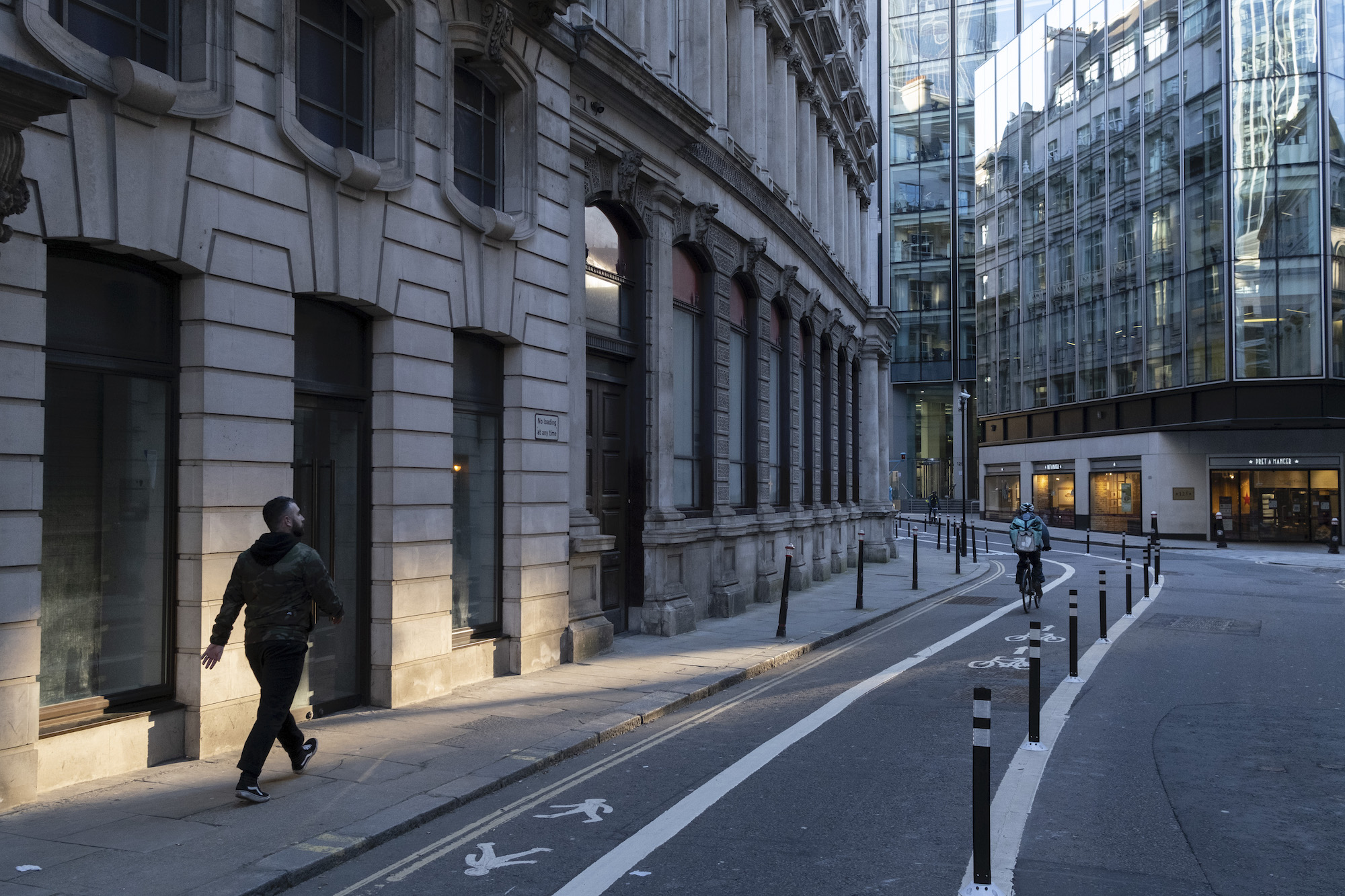Cycle schemes boom at forefront of Europe's post-Covid recovery
€1bn has been spent and at least 1,000km of cycle lanes created in the past year

Cycle lane in London (Photo by Richard Baker / In Pictures via Getty Images)
The latest race content, interviews, features, reviews and expert buying guides, direct to your inbox!
You are now subscribed
Your newsletter sign-up was successful
Cycling infrastructure has experienced a boom in Europe since the coronavirus pandemic hit, with the continent's cities spending €1bn and creating more than 1,000km of cycle lanes in 2020 as they adapt their transport systems to accommodate the new normal.
That's according to the European Cyclists' Federation, who have calculated the extent to which authorities have turned to cycling so that metropolitan hubs align with the need for social distancing.
In Paris, cycling is estimated to have grown by 70 per cent, including an increase in the proportion of women using bikes, with nearly two-thirds of Parisiens now wanting the 31 miles of temporary cycle lanes constructed to be made permanent. The city has listened, and 100 more miles are now being delivered of a planned 200 miles.
Milan now sees 10,000 cyclists use its most popular bike lane, an increase of 122 per cent, while Barcelona is also turning to two wheels after public transport use fell by 50 per cent and private car use by 10 per cent. Brussels' new 37-miles of pop-up lanes have also increased the number of active cyclists by 87 per cent.
>>> RideLondon’s future secure for 10 more years as popular sportive will follow a new route
London, meanwhile, saw half of all journeys between April to June 2020 completed by bike or on foot, an increase from 29 per cent before the pandemic.
While social distancing may be what induced these changes in behaviour, it's the reduction in air pollution that could make them permanent. 64 per cent of respondents to a survey of 21 European cities say they don't want the illegal, pre-Covid levels of air pollution to return.
The latest race content, interviews, features, reviews and expert buying guides, direct to your inbox!
"People say it took the Dutch or the Danish cities 30 or 50 years to build their cycle infrastructure, but we don’t have this kind of time," the ECF's Aleksander Buczyński told the Guardian.
"We have the climate emergency, which we cannot deal with in 50 years. We need to change the transport system pretty quickly, and it will be very difficult without making cycling a viable option for everyone. We need to do it fast, maybe not in two months but in a few years."
Jonny was Cycling Weekly's Weekend Editor until 2022.
I like writing offbeat features and eating too much bread when working out on the road at bike races.
Before joining Cycling Weekly I worked at The Tab and I've also written for Vice, Time Out, and worked freelance for The Telegraph (I know, but I needed the money at the time so let me live).
I also worked for ITV Cycling between 2011-2018 on their Tour de France and Vuelta a España coverage. Sometimes I'd be helping the producers make the programme and other times I'd be getting the lunches. Just in case you were wondering - Phil Liggett and Paul Sherwen had the same ham sandwich every day, it was great.